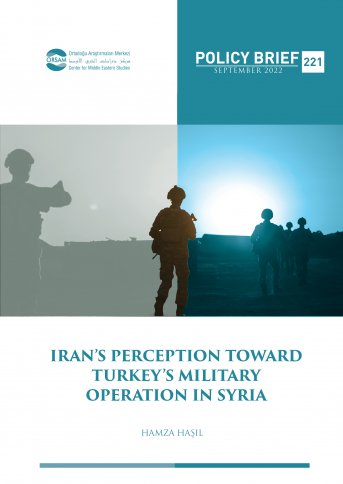
Iran’s Perception Toward Turkey’s Military Operation In Syria
Syria, as one of the focal points of Iran's foreign policy, is of critical importance for Tehran's regional engagements. Considering its influence in Syria as a useful instrument for its foreign policy, Iran tends to increase its presence in military, economic, religious/sectarian, and administrative matters in the region controlled by the Damascus administration. Although Iran's increasing presence in Syria is seen as a threat by many actors involved in the civil war, the implications of this situation for Iran have been limited. The shift of attention of Russia, one of the most powerful actors in Syria, to Eastern Europe after the Ukraine crisis brought along a process in which Iran's presence in Syria was further consolidated. In this period when Russia was distracted to a certain extent, the air operations of the USA and Israel remained far from being a deterrent and could not prevent Iran's efforts to maximize its interests in Syria. While all indicators were positive for Iran, Ankara's decision to launch an operation in the north of Syria caused Tehran to review its calculations. First of all, the Tehran administration seeks to prevent Turkey's possible operation and, if this does not happen, to minimize the risks that may pose a threat to its interests in the post-operation process. Therefore, it started to implement shuttle diplomacy in the triangle of Ankara, Moscow, and Damascus. This diplomatic alarm had repercussions in Syria, and the Iranian-backed militias were mobilized in some regions. Therefore, after having acquired its strongest position in Syria since the beginning of the civil war, Iran is uneasy about a Turkish military operation. The background of this uneasiness can be understood more clearly by examining Iran's current engagements in Syria.








